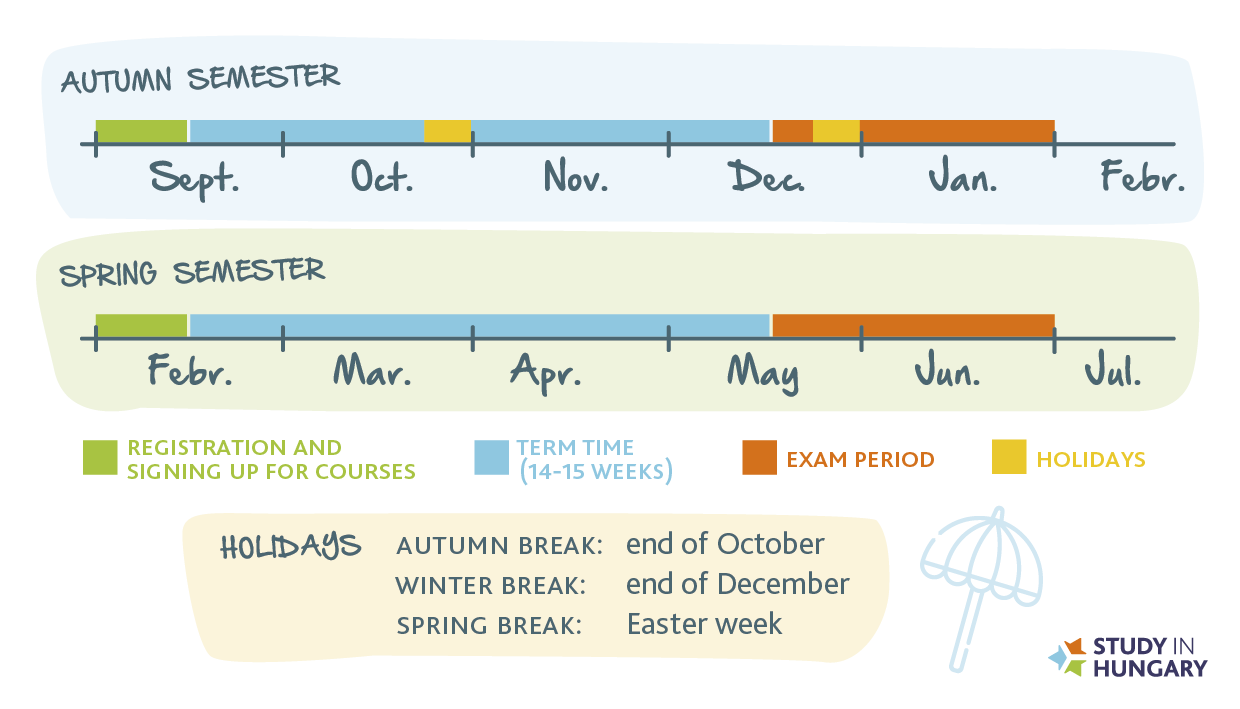Application Timeline
Study in Hungary announces the actual application call on this website in the autumn season so if you wish to get the latest information about our available programmes do not forget to visit our website from time to time.
Application process for self-financed students
Fee-paying students can submit their applications either electronically through the FELVI system (which requires advanced level Hungarian) or by mailing their documents directly to the institution. Although the application procedure for enrolment may vary at different institutions and courses, in general the process should be the following:
1. Find your university and programme
Visit the website of the chosen higher education institution and choose the programme that suits you through our Study Finder.
2. Check entry requirements and deadlines
Before you make your decision, always read the entry requirements for the degree programme you are applying for. Application period and exact dates for self-financed foreign students usually vary from one institution to another so first contact the chosen university to find out any relevant information. The deadline for the first round of admission procedures is usually in November for those classes that commence in February while the second round of admission procedures is in February for classes commencing in September.
3. Apply online
Fill in the online application form of the programme on the website of the chosen university, then upload or submit the required documents. After submitting your papers, you may be required to arrange an appointment for a Skype interview. Contact the university or the college to find out if there is anything else you need to do.
4. Wait to receive confirmation from the university
If you are accepted, you will get a notification from your university around late July and the contact person from the institution will inform you regarding further steps. Fee-paying students are usually required to transfer (part of) the tuition fee prior to the enrolment in the academic period.
Generally, you’ll need the following documents to be submitted:
- an up-to-date CV
- a letter of motivation
- copy of your passport / ID
- proof of language proficiency
- English translation of transcripts of records
- English translation of obtained diplomas
- two academic reference letters
Academic year
The academic year is divided into 2 semesters including 14-15 weeks of lectures and seminars followed by an examination period that lasts for 6-8 weeks.
 Autumn semester
Autumn semester
- First half of September: registration and signing up for courses
- Second half of September to middle of December: term time (14-15 weeks)
- Middle of December to beginning of February: exam period
Spring semester
- First half of February: registration and signing up for courses
- Second half of February to the first half of May: term time (14-15 weeks)
- Middle of May to the beginning of July: exam period
Holidays
- Autumn break: end of October
- Winter break: end of December
- Spring break: Easter week